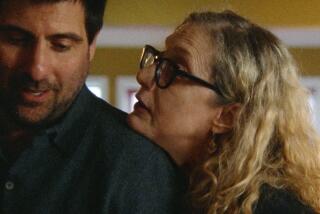Silver Is Building His Own Record Company
- Share via
To anyone who has known him throughout his long career, Horace Silver’s name has been identified with three main talents: pianist, quintet leader and composer of such jazz standards as “Song for My Father,” “Senor Blues,” “Doodlin’,” “The Preacher” and “Nica’s Dream.”
He is still writing music and still tours with a group, but these are no longer his principal activities. As he explained Saturday only hours after returning from a two-week tour of Japan, he has concentrated for years on building his own record company.
“I’ve been playing only during the summer for quite a few years now,” said Silver, whose group opens this evening for six nights at Catalina Bar & Grill. “I don’t care to work all year around anymore because I’m trying to build my business, and I’m very serious about it. It’s taken some years, and it’s still dragging its feet a little, but eventually I want to build it into something comparable to Blue Note.” (Before launching his own Silveto Records in 1981, he was with Blue Note for a record-breaking 28 years.)
Silver recently completed a new album for Silveto with Clark Terry on trumpet, Junior Cook on tenor sax and vocals by Andy Bey. On his other label, Emerald, Silver has an album due out soon that will be his first release under another artist’s name, a quartet date led by Clark Terry and taped live at a session in a Long Island club.
“I’m putting my own money into these releases,” Silver added, “and things are finally beginning to happen. I believe Bruce Lundvall, who took over at Blue Note some years ago, may arrange the Japanese distribution for Emerald.”
This year’s tour by the Silver combo was mainly overseas, with four weeks in Europe preceding the Japanese trip.
“Europe was hectic. We did seven one-nighters in a row in seven cities with no nights off,” he said. “One of them took a whole day to reach--a plane from Berlin to Frankfurt, another plane from Frankfurt to Rome, two or three hours’ wait in the airport for a third plane to Bari, Italy, and from there by surface to Molfetta, where we arrived just in time to rush on the bandstand. It was physically taxing, and I caught a bad cold, but the people liked the music, and that’s the main thing.
“Compared to Europe the Japanese tour was a breeze; we only had to do seven concerts in 14 days, with time to rest between dates. Actually, one of the hardest parts of these summer tours is getting the band together.”
Although he has had the same drummer, Carl Burnett, for many years, and is using singer Andy Bey for the third year, the rest of the group was not easy to assemble. “It’s so difficult to find cats today who can play our kind of music. They just don’t have enough chances to practice it, especially out here in Los Angeles. Even in New York you don’t find as many as you used to.”
Citing some of his own sidemen of yore, he said: “Where are the Blue Mitchells and Woody Shaws of today? Where are the Randy Breckers and Mike Breckers? It’s a strange thing--you can find a thousand guys who will play the arrangements just the way you wrote them, but when it comes to the solos--well, I won’t say they can’t play, but they just aren’t dependable. Years ago, it was just the other way around. A lot of cats were scuffling when they tried to read the music, but when it came to improvising, they played like crazy.”
In spite of the problems, Silver says he has been fortunate this year. He found tenor player Ralph Bowen, whom he “borrowed” from the group OTB, and hired his trumpeter, Vincent Cutro, out of the Lionel Hampton orchestra. The bassist is Phil Bowler, formally with Max Roach and Wynton Marsalis.
Although in the early years, groups like Silver’s and Art Blakey’s were almost always exclusively black, integration has become more common. As it happens, Silver’s current front line is Caucasian and the rest of the band black, but as the leader says, “I’m looking for musicianship, not color. I’m striving for the right sounds, the right combination; whoever impresses me, I hire.
“It’s tough when you find your musicians are good at times, but inconsistent. I don’t expect 100% perfection, but I do look for creative, imaginative performance at least 80% of the time. When it drops down to 50%, you’re really in trouble.” And how will it be at Catalina’s? Silver laughed. “This summer, we’ve really been lucky. Right now the band is truly 80% plus.”
More to Read
The biggest entertainment stories
Get our big stories about Hollywood, film, television, music, arts, culture and more right in your inbox as soon as they publish.
You may occasionally receive promotional content from the Los Angeles Times.










